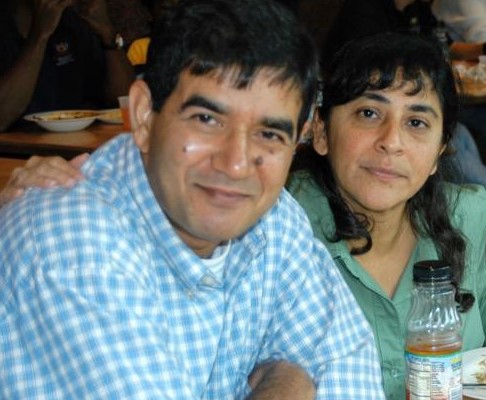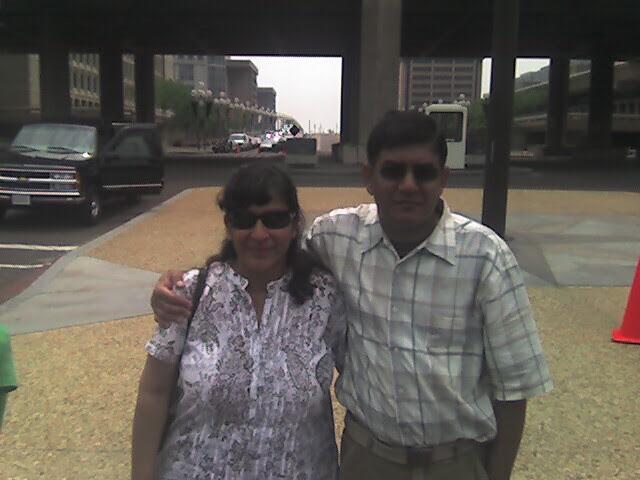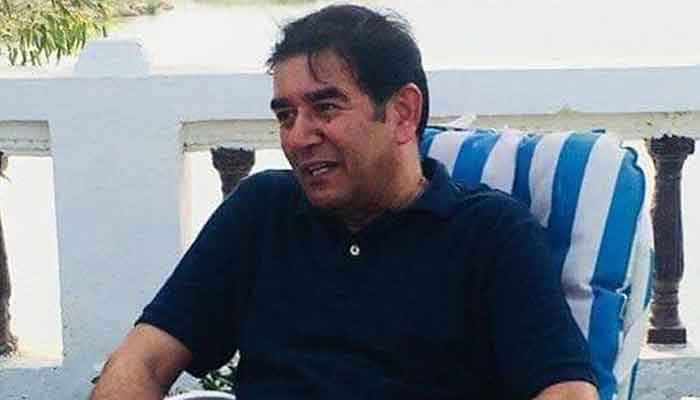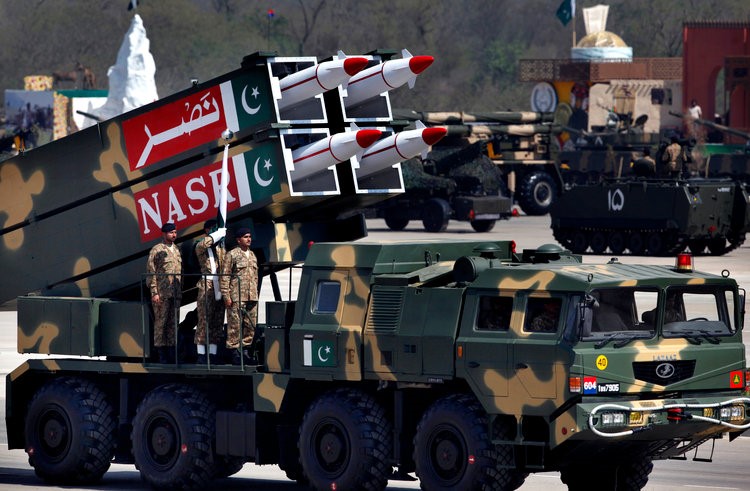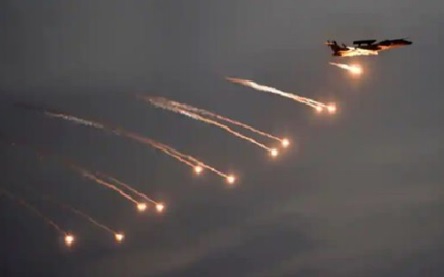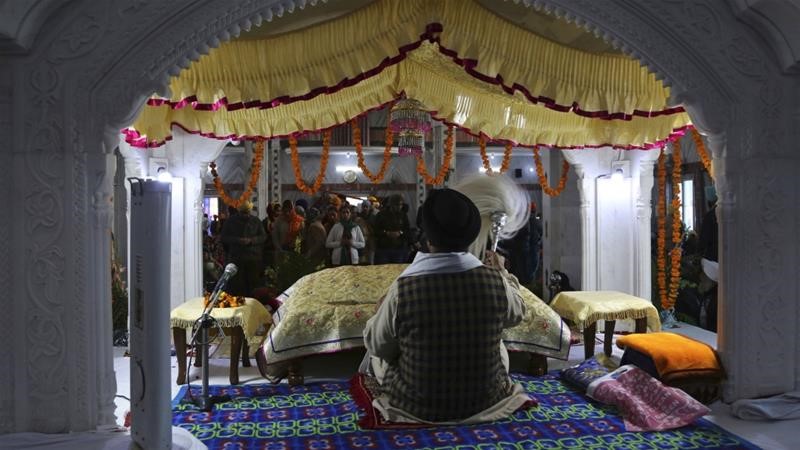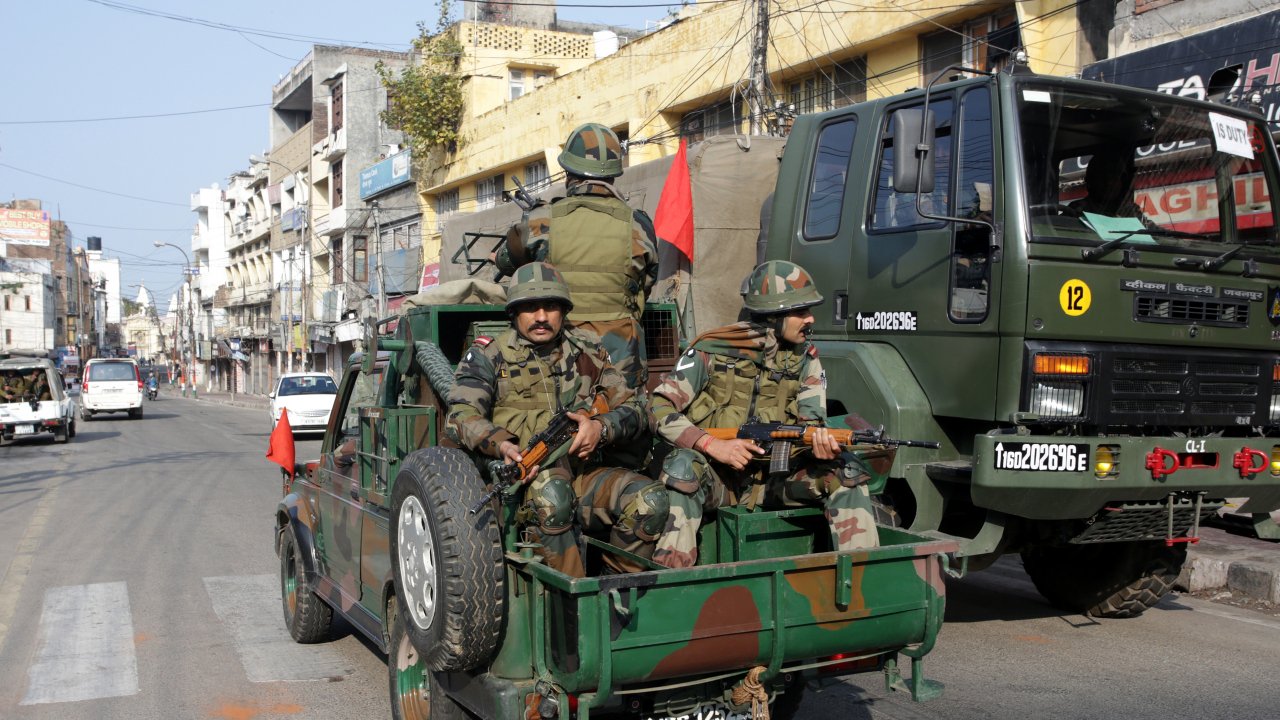Islamabad, Pakistan – Indian fighter jets on Tuesday crossed into Pakistani territory, conducting what the foreign ministry in New Delhi termed a “non-military pre-emptive action” against armed group Jaish-e-Mohammed (JeM), dramatically escalating tensions between the nuclear-armed neighbours weeks after a suicide attack in the disputed Kashmir region.
Pakistan reported the Indian airspace incursion, with military spokesman Major General Asif Ghafoor saying its air force jets were scrambling to respond, forcing the Indian aircraft to “release [their] payload in haste while escaping”.
Indian Foreign Secretary Vijay Gokhale, however, asserted that the jets had hit their target, and that “a very large number of JeM terrorists, trainers, senior commanders and groups of jihadis who were being trained for fidayeen action were eliminated”.
“The government of India is firmly and resolutely committed to taking all necessary measures to fight the menace of terrorism,” he told reporters in New Delhi. “Hence this non-military pre-emptive action was specifically targeted at the Jaish-e-Mohammed camp.”
C Uday Bhaskar, the director of the Society for Policy Studies based in New Delhi, said: “India has sent a very firm signal.”
“The fact that air power has been used for the first time against a terrorist target to my mind signalled to Pakistan that India is demonstrating resolve in terms of using military power, particularly air power,” he said.
Indian Prime Minister Narendra Modi held a meeting with his top government officials in New Delhi where he was briefed about the predawn air attack.
Hours later, speaking at an election rally in the western state of Rajasthan, Modi said “the country is in safe hands”, avoiding direct reference to the air raids.
“I pledge on this soil … I will not let the country bend.”
Al Jazeera’s Faiz Jamil, reporting from New Delhi, said that the Indian government has been under a lot of pressure to act in the wake of the Kashmir attack.
“This attack was expected and one of the reasons it was delayed was the visit of the Saudi Crown Prince Mohammed bin Salman to the region,” Jamil said.
“But everyone did expect that this would somehow happen sometime soon, especially with [general] elections coming up in April.”
‘Uncalled-for aggression’
A special meeting of the National Security Committee chaired by the Prime Minister Imran Khan was held at his office on Tuesday.
The meeting was attended by the ministers of foreign affairs, defence and finance, the chairman joint chiefs of staff committee and other civil and military officials.
“Forum strongly rejected Indian claim of targeting an alleged terrorist camp near Balakot and the claim of heavy casualties. Once again, Indian government has resorted to a self-serving, reckless and fictitious claim,” the prime minister’s office said in a statement.
“Forum concluded that India has committed uncalled for aggression to which Pakistan shall respond at the time and place of its choosing.”
Hassan Akbar, director at the Islamabad-based Jinnah Institute think-tank, termed the attacks “a very provocative and aggressive action by India”.
“They did drop payload in various sectors including in Khyber Pakhtunkhwa province, and this constitutes a serious violation of Pakistan’s airspace and sovereignty.”
Akbar said Pakistan’s response could range from hitting Indian artillery positions along the Line of Control to taking “a more escalatory position” and launching similar airstrikes on Indian military targets.
Sounds of aircraft
Local residents and journalists in Pakistan told Al Jazeera that the sounds of aircraft and an explosion were heard in the Jaba area of Mansehra district, located about 60km from the LoC – the de facto border that divides Indian- and Pakistan-administered Kashmir.
India and Pakistan have fought three of their four wars over Kashmir, which both claim in full but administer separate portions of.
The air attacks on Tuesday appear to have taken place outside of Kashmir, at least 10km inside the Pakistani province of Khyber Pakhtunkhwa.
Pakistan’s military did not confirm the location of the incident, offering conflicting reports that at first placed it near the town of Balakot, about 12km from Jaba, and later claimed it occurred within the confines of Pakistan-administered Kashmir.
Tensions between the South Asian neighbours have been high since February 14, when a suicide attacker killed at least 42 Indian security personnel in the Indian-administered Kashmir town of Pulwama.
Raids in Kashmir
Meanwhile, Indian security forces have conducted raids on the houses of four senior Kashmiri separatist leaders, including chief of the Jammu and Kashmir Liberation Front Yasin Malik.
Kashmiri civilians say they have been seeing heavy troop deployment, fuel shortages and frequent Indian security forces raids since the Pulwama attack.
“The cost of war might not be known in the TV studios, but we have already borne the brunt of the long conflict. Now, it seems the only option left for us is quick devastation or slow devastation,” said 65-year-old Bashir Ahmad Pal, a resident of Baramulla, a frontier town in northern Indian-administered Kashmir.
The joint group of separatist leaders have called for a two-day shutdown in Kashmir from February 27 to protest against the raids and “spree of arrests”.
India has threatened Pakistan with military action repeatedly since the February 14 blast, blaming it for “controlling” the attack. Pakistan-based armed group JeM had claimed the attack.
Pakistan denies any role in the attack, and last week Pakistani Prime Minister Imran Khan asked India for “actionable intelligence” in order to take action against any JeM operatives in Pakistan.
Pakistan has dubbed it an act of aggression.
Pakistani Foreign Minister Shah Mehmood Qureshi, speaking after the National Security Committee meeting, told reporters that the Indian incursion into Pakistani airspace lasted three minutes, beginning at 2.55am local time. He said that the aircraft remained near the LoC, and did not enter airspace outside of Kashmir.
“They left from near the LoC, because of our alertness and the alertness of the Pakistan Air force,” he said.
“Escalation is not our aim, nor will it be. We have always spoken of de-esclation and defusion. And repulsing aggression is our right,” he said.
Earlier Qureshi said Pakistan reserved “the right to a reasonable response and the right to self-defence”.
Additional reporting by Rifat Fareed from Srinagar in Indian-administered Kashmir
Four people, including two children, have been killed and seven others wounded in an exchange of fire between Indian and Pakistani troops in Pakistan-administered Kashmir’s district of Kotli, officials said.
“So far, four people have been killed in the shelling,” Nasrullah Khan, a senior hospital official told Al Jazeera by telephone on Tuesday night.
Khan said the dead included a woman and her two children in Nakyal along the Line of Control (LoC), the heavily-militarised de facto border between India and Pakistan.
“An Indian mortar shell hit a house in Nakyal sector along the Line of Control that killed a mother, daughter and son,” local disaster management authority official Shariq Tariq told AFP news agency.
Another death was reported from Koiratta town in the semi-autonomous region, Khan said.
Pakistan says ‘will respond’ to Indian air raids on its territory
Meanwhile, Indian media reports said at least five of India’s soldiers were also wounded in cross-border firing along the LoC.
The civilian deaths in Pakistan-administered Kashmir came as India earlier on Tuesday said it had launched air raids near Balakot, a town 50km from the LoC inside Pakistan’s territory.
The raids followed a suicide attack earlier this month in India-administered Kashmir, which killed 42 Indian troops when a rebel rammed his explosives-laden car into a paramilitary convoy.
It was the deepest cross-border attack launched by India since the last of its three wars with Pakistan in 1971, when the two nations fought over Bangladesh’s independence.
But there were competing claims about the damage the air strikes caused.
The Indian government, facing a general election in April and May, said the strikes hit a training camp belonging to the armed group, Jaish-e-Muhammad (JeM), which claimed the February 14 suicide attack.
India bombs targets inside Pakistan
Indian Foreign Secretary Vijay Gokhale said “a very large number” of JeM rebels were killed, without specifying any number.
“The existence of such training facilities, capable of training hundreds of jihadis, could not have functioned without the knowledge of the Pakistani authorities,” Gokhale said.
Pakistan, which denies harbouring the JeM, also dismissed India’s claim, saying the Indian aircraft had dropped their bombs in a wooded area, causing no damage or casualties.
Islamabad called India’s air raids as “reckless and fictitious” and said it would respond in due course “at a time and place of its choosing”.
Indian Prime Minister Narendra Modi and his Pakistan counterpart Imran Khan both summoned emergency meetings of top ministers after the attack.
Khan also convened a meeting for Wednesday of the National Command Authority, which oversees command and control of the country’s nuclear arsenal, the military said.
Modi had threatened a “jaw-breaking” response to the February 14 attack.
India vs Pakistan: Military strength and arsenal
But at an election rally on Tuesday, the Hindu nationalist leader did not directly mention the air raids. He paid tribute to the military and said: “I assure the nation that the country is in safe hands.”
The escalation between India and Pakistan has triggered international alarm, with China and the European Union calling for both sides to show restraint.
Kashmir has been divided between Pakistan and India since the end of British colonial rule over the subcontinent in 1947. Both sides claim the territory in full.


